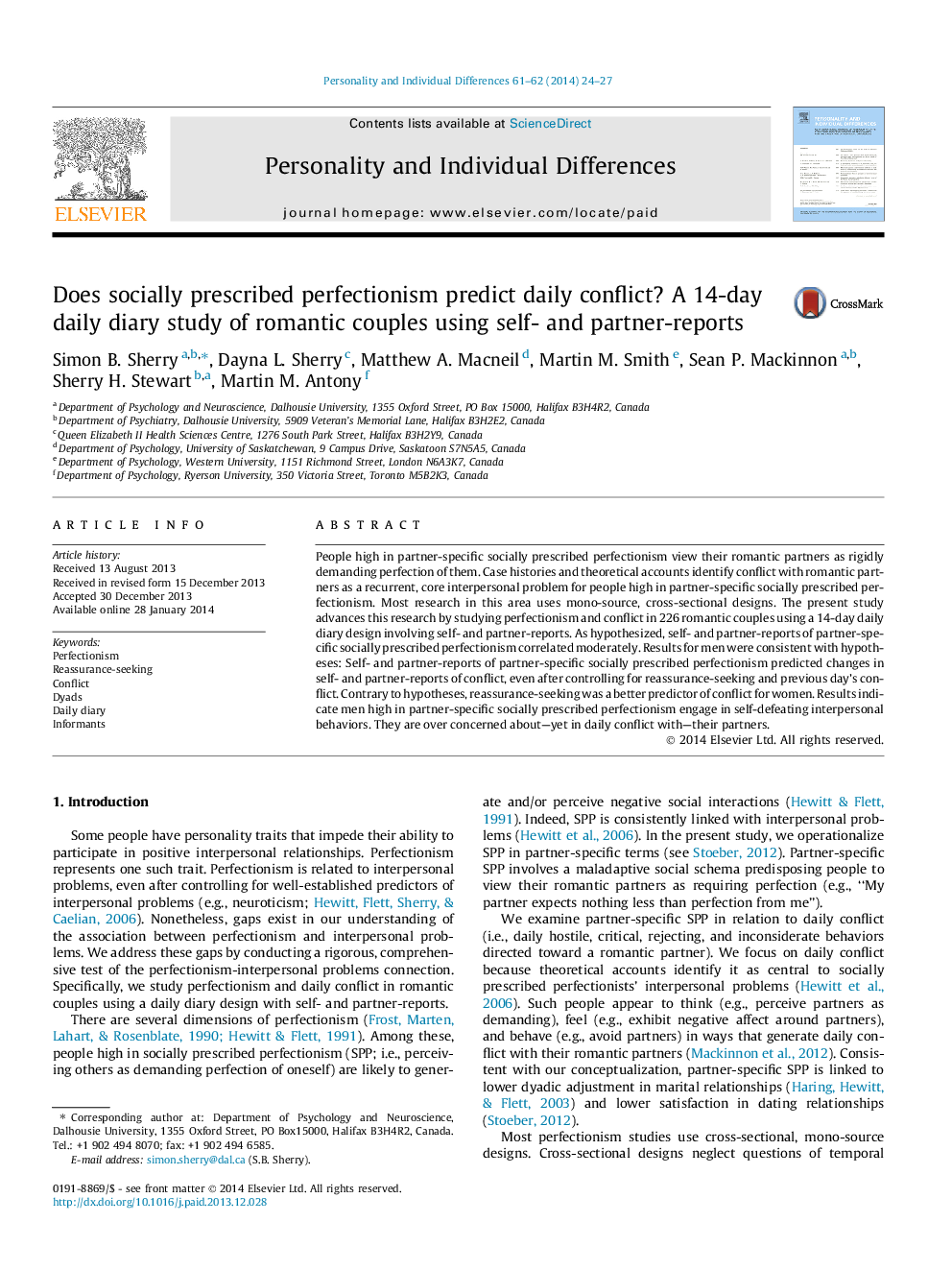| Article ID | Journal | Published Year | Pages | File Type |
|---|---|---|---|---|
| 890528 | Personality and Individual Differences | 2014 | 4 Pages |
•Some people view their romantic partners as rigidly demanding perfection of them.•We refer to this trait as partner-specific socially prescribed perfectionism (SPP).•226 romantic couples were studied using a 14-day daily diary design.•Self-reports and partner-reports of SPP correlated moderately.•SPP predicted increases in daily conflict in men, but not in women.
People high in partner-specific socially prescribed perfectionism view their romantic partners as rigidly demanding perfection of them. Case histories and theoretical accounts identify conflict with romantic partners as a recurrent, core interpersonal problem for people high in partner-specific socially prescribed perfectionism. Most research in this area uses mono-source, cross-sectional designs. The present study advances this research by studying perfectionism and conflict in 226 romantic couples using a 14-day daily diary design involving self- and partner-reports. As hypothesized, self- and partner-reports of partner-specific socially prescribed perfectionism correlated moderately. Results for men were consistent with hypotheses: Self- and partner-reports of partner-specific socially prescribed perfectionism predicted changes in self- and partner-reports of conflict, even after controlling for reassurance-seeking and previous day’s conflict. Contrary to hypotheses, reassurance-seeking was a better predictor of conflict for women. Results indicate men high in partner-specific socially prescribed perfectionism engage in self-defeating interpersonal behaviors. They are over concerned about—yet in daily conflict with—their partners.
